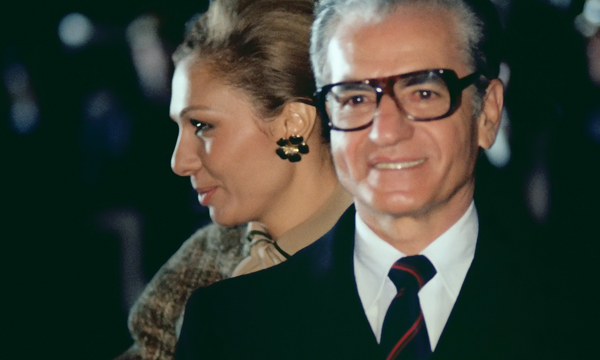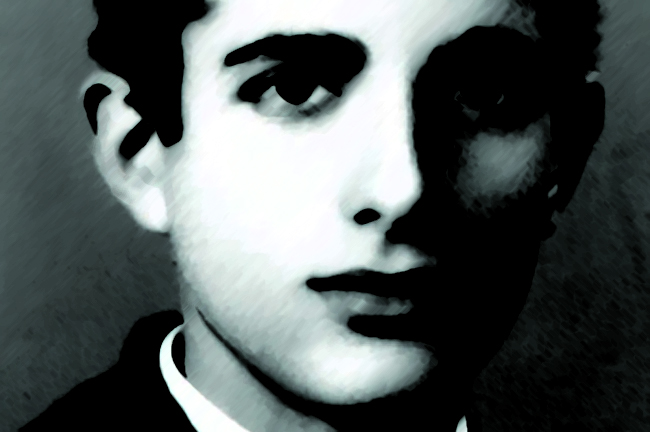Early Tuesday morning, in Boston’s tony South End neighbourhood, the son of the last Shah of Iran put a gun to his head, and pulled the trigger. Ali-reza Pahlavi (44), second in line of succession to the Iranian throne, will now be relegated to the footnotes of 20th century history, if he is remembered at all. We are reminded, as Iran threatens to go nuclear, that the Pahlavi legacy is anything but marginal. Sanitising that history, it seems, is a deadly business. BY RICHARD POPLAK.
For those who knew Ali-reza Pahlavi, it could only ever have ended this way. By most accounts, he was a man unable to come to terms with destiny’s vicissitudes. For most of us, “destiny” is a schmaltzy buzzword, a way of explaining the unexplainable. For Ali-reza, the term yoked him to the Pahlavi dynasty, the dissolution of which put in motion one of the most significant events of the last century. The 1979 fall of the Shah of Iran ushered in the Iranian Revolution, a regime that now threatens the balance of global power with its attempt to build a nuclear weapons programme. Ali-Reza was destined to be an Iranian prince. He was thus destined to die at his own hand many thousands of miles from Persia.
Ali-reza, born in Tehran in 1966, was the son of Mohammad Reza Shah Pahlavi and the Shahbani Farah. Ali-reza’s father, born in 1919, was the second emperor from the House of Pahlavi, and ruled from 1941 until his ousting on February 11, 1979. Heavy of eyebrow, with a leonine coif and a penchant for bespoke Saville Row tailoring, the Shah was an international celebrity – a jet-setting cosmopolitan who, at the age of 11, was sent to boarding school in Switzerland, and waltzed through the grand halls of Europe, a continent in which he was preternaturally comfortable.
Mohammad Reza knew how to use a fish knife and how to tie a bowtie, but he had almost no understanding of the nation he was tasked, at a very young age, with ruling. Indeed, his rise was a construct of wartime global realpolitik – the first Reza Shah, installed by the British in 1925, was a heavy-handed thug who was not bright enough to grasp the war’s geopolitical subtleties. (Incidentally, the elder Shah did some hard time in the Johannesburg suburb of Houghton post-exile.) The British needed the so-called Persian Corridor to supply the beleaguered Soviet Union with material to fight the Axis powers. They were looking for compliancy, and in the Mohammad Reza Shah, they found it.
The young Shah’s ignominies were numerous, but it was his behaviour during the early 1950s – when the democratically elected Prime Minister Dr Mohammad Mossadegh tried to wrest control of his country’s petroleum from the Anglo-Iranian Oil Company – that earned him his lasting status as a Western stooge. Operation Ajax, undertaken by the CIA, was engineered as a coup that would remove Mossadegh, crush nationalisation of the oil industry and communism along with it, and invest the power of the state in the monarchy. The first attempt failed, and the Shah fled, tail between his legs, to Italy. But the coup eventually took, and by 1953, Iran was the Shah’s to run unopposed.
Of the interminable years leading up to the revolution, in which the Shah pursued his so-called White Revolution (female suffrage and infrastructure development combined with the crushing of all political dissent), the great Polish journalist Ryszard Kapuscinski said it best in Shah of Shahs:
And Savak [the secret police loyal to the Shah] meant, above all, torture of the most horrible kind. They would kidnap a man as he walked along the street, blindfold him, and lead him straight into the torture chamber without asking a single question. There they would start in with the whole macabre routine – breaking bones, pulling out fingernails, forcing hands into hot ovens, drilling into the living skull, and scores of other brutalities – in the end, when the victim had gone mad with pain and become a smashed, bloody mass, they would proceed to establish his identity. Name? Address? What have you been saying about the Shah? Come on, what have you been saying? And you know, he might not have said anything, ever. He might have been completely innocent. But to Savak, that was nothing, being innocent. This way everyone will be afraid, innocent and guilty alike, everyone will feel the intimidation, no one will feel safe.
This was the Iran that Ali-reza Pahlavi, the Shah’s second son, and the third of his four children with the irrepressibly gorgeous Farah, was born into. There are pictures of him as curly headed boy, skiing with his father and his beloved sister Leila in St. Moritz; like his father, he was a cosmopolitan first. He was fourteen when his family was exiled from Iran in 1979, landing in Egypt, then the States, then Panama, then back to Egypt. All the while, the Shah was dying from non-Hodgkins lymphoma, and he would not live to see Ali-reza’s sixteenth birthday.

Photo: Mohammed Reza Pahlavi, Shah of Iran, and his wife, Queen Farah, prepare to depart Andrews Air Force Base after a visit to the United States, 16 November 1977. (Wikimedia commons)
The young prince went to schools in Tehran, New York City, Cairo, studied at Princeton and Columbia, finally earning a PhD in Ancient Iranian Studies and Philology at Harvard. One imagines him poring over arcane Persian documents, trying to parse their meaning, trying to reconcile them with modern Iranian history all the while. But one can’t imagine what it must be like, being the son of one of history’s monsters. His sister Leila could not manage it. She was found in a pricy London hotel in 2001, emaciated from years of anorexia nervosa, dead from a massive overdose of barbiturates. Ali-reza never recovered from her loss.
As of yesterday, a statement on Reza Pahlavi’s (Ali-reza’s older brother, and first in line to the throne) website reads:
Like millions of young Iranians, [Ali-reza] too was deeply disturbed by all the ills fallen upon his beloved homeland, as well as carrying the burden of losing a father and a sister in his young life. Although he struggled for years to overcome his sorrow, he finally succumbed, and during the early morning hours of the 4th of January 2011, in his Boston residence, took his own life, plunging his family and friends into great sorrow.
And so, the sins of the father are visited upon his progeny. The Shah escaped the clutches of the mad mullahs; his children have not. None of this is implied in the above statement, written no doubt in the agony of grief. Reza’s words suggest that Ali-reza’s personal sorrow intersected with his mourning for Iran. But the surviving Pahlavis have never implicated their father in those “ills”; they’ve never properly connected him to the modern Iranian tragedy. They cannot be blamed for the regime he conducted with his peculiar brand of detached cruelty, but one scours their many official pronouncements and interviews looking for mention of the Savak or the vast detention centres. Nothing. Ali-reza’s mother is a keystone in the Iranian diaspora’s cult of nostalgia for the icons of the seventies. In the worthy HBO documentary The Queen and I, she comes across as warm, human, but determined to avoid any real relationship with the past.
The surviving Pahlavis have developed a notion of recent Iranian history that ignores Mohammad Reza’s culpability, and thus denudes all meaning. So far, this approach has claimed two of the Shah’s children. It’s eerie when the grand events of history come to roost in some small, personal story; we are forced to consider the fact that politics are always personal. Ali-reza Pahlavi’s life, and early death, is a lesson in the dangers of sanitising the past. Reconcile with history, it suggests, or it will claim you. DM
Read more: The Toronto Star, The Sharbani’s website, and a brief on Ali-reza’s life.
Main photo: Prince Ali-reza Pahlavi, 1978. (Wikimedia Commons)


















 Become an Insider
Become an Insider